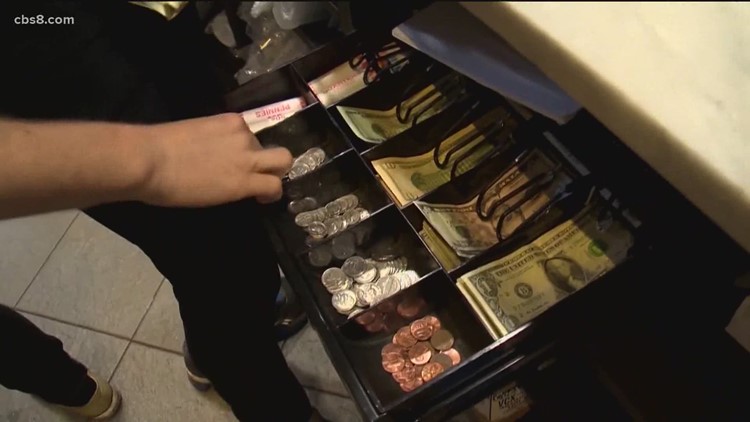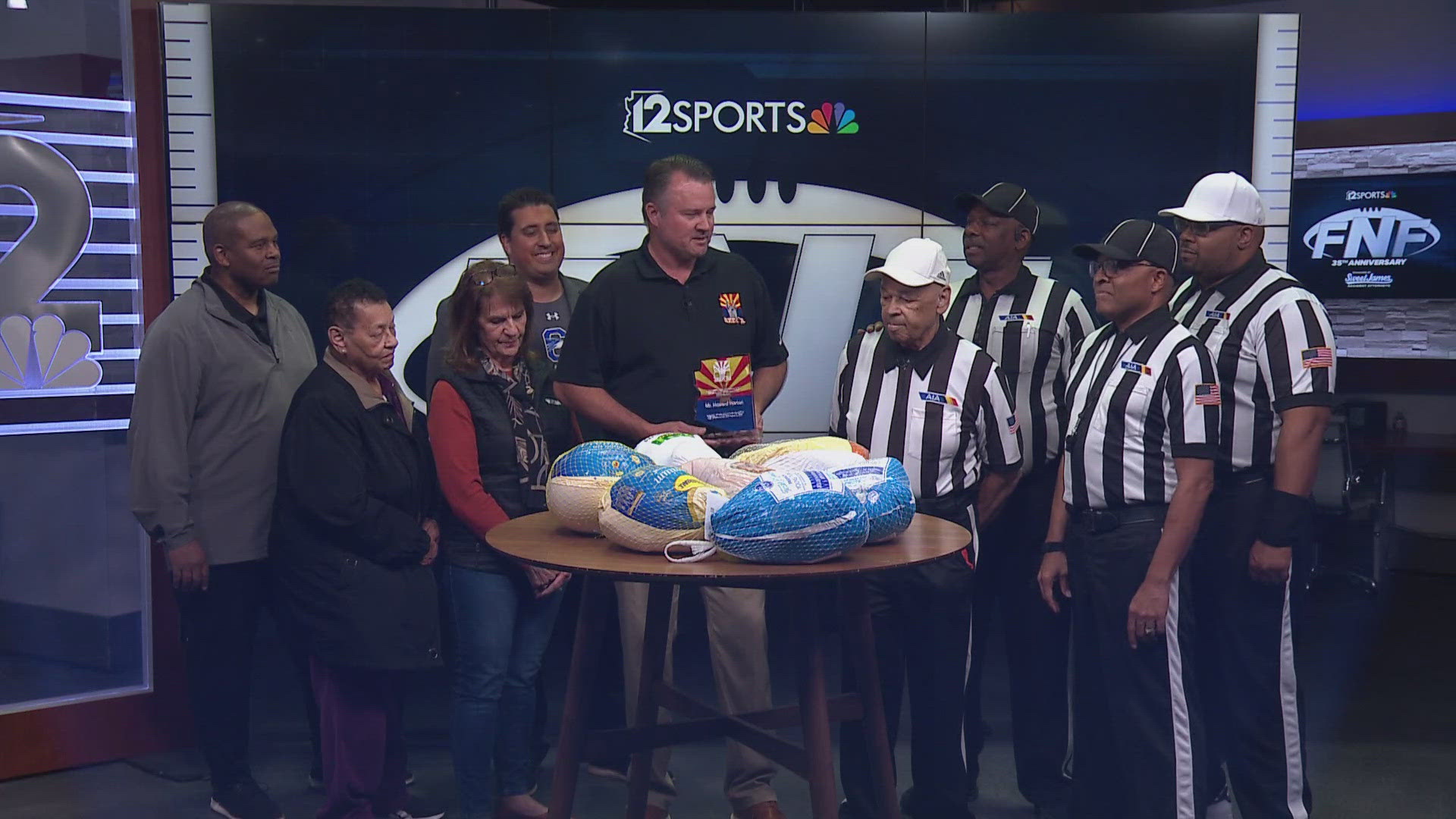SAN DIEGO — One lesson most parents teach their kids, is to count their change when they pay with cash.
Two 14-year-old boys in San Diego received no change, however, after buying dinner at a Chipotle restaurant in 4S Ranch.
It turns out, the nationwide coin shortage due to the pandemic caused some confusion at the local business.
The families shared their story to make others aware of potential issues that could happen during the coin shortage, especially among teenagers, who often use cash since they typically don't have credit cards.
Devon Shepherd and Aiden Leeder rode their bikes to the restaurant on Thursday afternoon to buy dinner for their families.
After placing their order in line as employees prepared their food, they walked down to the cash register to pay.
"It ended up being $11.36 and I paid $15 for it, and they did not give me change," said Shepherd.
Leeder's total was $16.70. He paid with a $20 bill.
"They said, 'we can't give you the $4 back,'" said Leeder.
"I was kind of confused, but I was really hungry and they told us at the end, after they'd already made the food. I just assumed, because of the virus they want to minimize contact or something."
Shepherd didn't think it added up, so he asked the cashier for a reason.
"She said there was coin shortage and a health policy that said they would not give change back," said Shepherd.
He said his first thought was that Chipotle was going to make millions off of this new policy. He said, it reminded him of taxes.
"You take a few cents off each bill, and you end up making billions of dollars a year," Shepherd explained.
Shepherd's mom, Marianne, said she called the restaurant and a manager confirmed their new policy during the pandemic is not to give cash back.
"The first thing that went through my mind was this is not legal," she said.
Businesses across the country are requesting exact change due to the coin shortage. Some stores are offering gift cards to their customers for the difference, others are donating to charity.
Marianne Shepherd said the employee at Chipotle could have suggested the boys use their cash to purchase gift cards at the register, then use the gift cards to make their purchase; This would have left them with a balance remaining on the card for future use.
On Friday, they returned to the store and were able to talk to the general manager, who explained it was a misunderstanding. She said the manager was confused, thinking the direction to "not give change" meant to not give any cash back. The general manager said the boys should have been given dollar bills in change. She explained to the family the store had run out of coins on Wednesday night, but was able to get some coins Friday morning.
The families did get their change back and will be donating it to the San Diego Food Bank, where they regularly donate, knowing that little things do make a difference.
"At first we all were like, well, it's only four dollars. It's not going to hurt us very much," Leeder said, but then they realized it's more about the principle of the situation.
"We started to think about the bigger picture, and if this is happening to a lot of other people, what if there's people less fortunate than us, and four dollars is a lot of money to them?"
"This is exactly the whole reason that I wanted to address this," explained Marianne. She wants people to be aware they may need exact change when shopping at local businesses.
"Just be prepared. Make sure that you bring smaller bills with you if you need to use cash and that you have extra coins. And the same goes for businesses. Many times, employees that work at places like this are teenagers or young adults."
As a small business owner herself, Marianne said she also hopes this lesson leads to better training of employees, so everyone can work with each other and get through this pandemic together.
Meantime, the Federal Reserve expects the shortages to ease as the economy opens up and more people use cash and coins.
The U.S. Mint, which slowed production to help protect employees, is also ramping up production to 1.5 billion coins a month.



